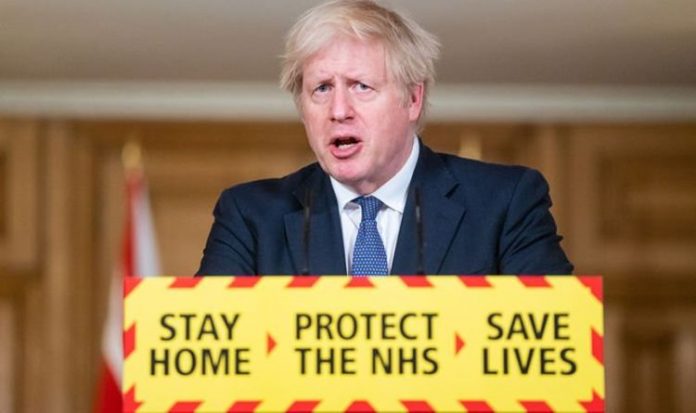Earlier this year, Boris Johnson once again ordered Brits to stay at home due to rising coronavirus cases. England was placed under its third national lockdown, and people are currently only able to leave their homes for reasons deemed essential. Although England has spent many of the last few months under lockdown, vaccine rollout continues and it is hoped vaccinations will help to ease the UK out of lockdown. More than three million people have now received their first dose of the Covid-19 vaccine.
Will lockdown end in February 2021?
The Prime Minister suggested lockdown measures may start to be eased around the middle of February when he first announced the news of a third national lockdown earlier this year.
However, MPs passed legislation allowing the Government to keep the current lockdown restrictions in place until the end of March.
The Government may also choose to extend lockdown restrictions past this point if such measures are deemed necessary to control the spread of the virus.
READ MORE: Lockdown end: SAGE scientist warns February lifting ‘disaster’ for UK
“These measures that we have got in place that we hope to be able to lift – and we should be able to lift, when we have been able to protect through vaccination those who are vulnerable – right now, the vaccination is not in a position to do that.”
Speaking on BBC Breakfast, Mr Hancock said the rules were always “under review”, but he urged people to stick to the current lockdown restrictions.
He added: “Of course you can always make changes at the margin, but we brought in a very significant restriction, the stay at home measures… It is possible then to make further restrictions, but what I’d say is that the most important thing is compliance with the existing measures, that’s the thing that is going to make the difference.”
Professor John Edmunds of the Scientific Advisory Group for Emergencies (Sage), told BBC Radio 4’s Today programme it could be a “disaster” to end restrictions soon.
DON’T MISS:
No point keeping people COVID-safe if we’re killing them through fear [COMMENT]
COVID crisis: R rate narrows as daily infections fall by fifth [REPORT]
SNP divided: Cracks emerge in Sturgeon’s party over IndyRef2 plot [INSIGHT]
Professor Edmunds said: “I think it would be a disaster if we removed restrictions in, say, the end of February when we have gone through this first wave of the vaccination.
“First of all vaccines aren’t ever 100 percent protective, and so even those that have been vaccinated would be still at some risk.
“Secondly, it is only a small fraction of the population who would have been vaccinated and if you look at the hospitalisations at the moment, about half of them are in the under 70s, and they are not in the first wave to be vaccinated.
“If we relaxed our restrictions we would immediately put the NHS under enormous pressure again.”
How long did the previous lockdowns last?
The current lockdown is England’s third national lockdown since March 2020.
The first lockdown was brought in on March 23, 2020, and several months later some restrictions started to be eased.
It was not until July 4, 2020, that the Government allowed the reopening of hospitality businesses – so the first lockdown technically lasted for some three and a half months.
The second national lockdown in England was announced on October 31, 2020, and measures started on November 5.
The second lockdown ended on December 2, 2020, but the Government was forced to scrap most of its Christmas bubble guidance a few weeks later due to rising Covid cases and the spread of a new variant.
The third national lockdown began on January 5, the day after the PM’s announcement of another national lockdown.







